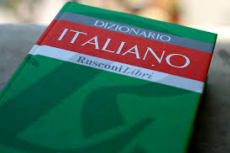
Email: ZYVC057@live.rhul.ac.uk
Total Article : 213
About Me:I'm a graduate student studying International Criminal Law and first started writing for King's News almost 4 years ago! My hobbies include reading, travelling and charity work. I cover many categories but my favourite articles to write are about mysteries of the ancient world, interesting places to visit, the Italian language and animals!

We’re back with more interesting facts on the Italian language, this time we shall explore the best methods to learn Italian and discover whether Italians actually use the hand gestures they are most famous for!
Will learning Italian help you learn other languages?
Italian is a Romance language as it derives from Latin. All romances languages such as French, Spanish and Portuguese share some similarities in their grammar and vocabulary. I have personally found that many Spanish words are quite similar to Italian words, for example the Spanish ‘vida’ is similar to the Italian ‘vita’ meaning life. More generally, learning a second language makes you mind more flexible and more attentive to new languages and sounds, it becomes easier to distinguish one word from another and you are provided with a learning mechanism that can be adapted to speaking any language.
What are the best ways to learn Italian?
Apart from attending regular Italian lessons in order to secure your knowledge on Italian grammar, speaking Italian is incredibly important. If you have no Italian relatives or friends to speak to whilst at home, try listening to an Italian cassette and repeating the words after them – this will ensure you have the correct pronunciation. Listening to Italian songs and watching Italian TV programmes can really enhance your knowledge on Italian culture whilst improving you language skills and being an enjoyable learning environment. Lastly, if you are really keen on learning Italian fluently I advise writing in Italian – whether it’s in your diary or just a few sporadic notes here and there. Look up the best Italian comedians and watch them before bed, discover some beautiful Italian cities whilst surfing the internet in your free time, have an Italian food themed night with your friends, learn some traditional dances like ‘La tarantella’, try to immerse yourself as much as possible in Italian lifestyle.
Do people really use hand gestures all the time?
Yes. The answer is always yes. I myself get made fun of by friends because of my constant hand gesture – particularly when I’m saying something that I feel strong about. If an Italian goes abroad, they will no doubt try to communicate with their hands at some point so make sure to examine people when walking down the streets of Naples on a beautiful summer’s eve. In fact it is in Naples were you can find almost everything at any given time use their hands to communicate with others – it’s a way of emphasising your point and trust me, once you get into the habit it is impossible to stop!
How can you be polite?
In Italian, just like in French, there are multiple ways of saying ‘you’. ‘Tu’ is used for friends and people you are on first-name basis with whereas ‘Lei’ refers to people you do not know well or want to show respect to. ‘Lei’ and it’s plural ‘Loro’ are written with capital letters to distinguish them from ‘lei’ (she) and ‘loro’ (they). IN an informal environment one may ask ‘Possiamo darci del tu?’ (Can we use ‘tu’?).
Image: http://eed84f7d0145fa563f89-a92b1253a38487d219b2041cb455a8db.r55.cf2.rackcdn.com/4540023553.jpg

0 Comment:
Be the first one to comment on this article.